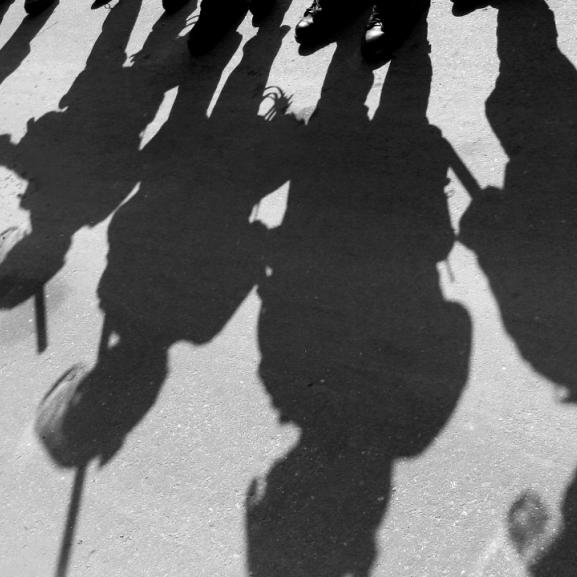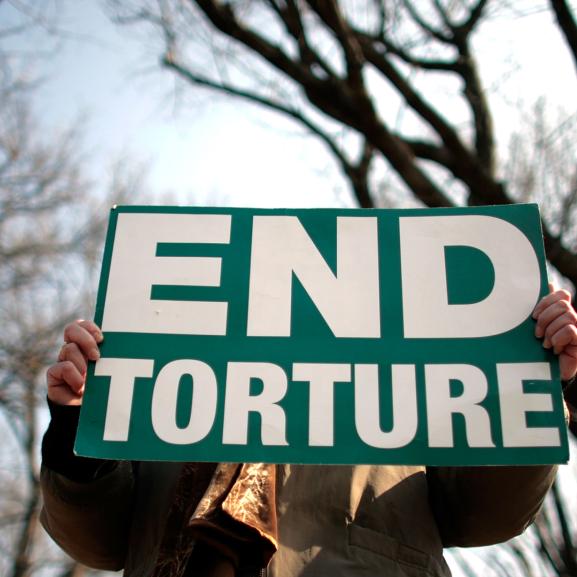“Hooded men” case: response to ECHR decision not to re-open 1978 Ireland v UK case
Sonya Sceats, Chief Executive of Freedom from Torture, said:
“Freedom from Torture deeply regrets the Court’s decision not to re-open the 1978 ‘hooded men’ case. Our expert doctors regularly document the physical and psychological impacts of the so-called ‘five techniques’ and have no qualms calling them what they are – torture, plain and simple.“This decision will be devastating for the survivors who have fought a long and difficult battle to have their mistreatment by British interrogators recognised for the torture that it was. It does not mean that the ‘five techniques’ do not constitute torture by today’s legal standards, and this was a missed opportunity to affirm that the absolute ban on torture includes “clean” methods designed to leave no physical trace.
“With our own Prime Minister hesitating about whether to launch an inquiry into UK torture complicity after 9/11 and a US President who brazenly advocates torture, the case is another reminder in liberal democracies that the global fight against torture also needs to be won at home.”
Background: Fourteen men were subjected to coercive interrogation methods in Northern Ireland by the British army and the Royal Ulster Constabulary in 1971. As a result, the Irish Government took a case to Strasbourg against the UK.
The 1978 ruling by the Court stated that the so-called ‘five techniques’ – hooding, stress positions, white noise, sleep deprivation, and deprivation of food and water, were “inhuman and degrading” but did not reach the severity threshold to qualify as torture. Ireland argued that the treatment of these men had “long lasting and severe effects” and therefore qualified as torture. It has since become clear that the British government withheld important evidence, including medical reports detailing the psychological impact on the men.
International consensus: The “five techniques” are recognised as torture methods in the global standards for the documentation of torture –the UN-endorsed Istanbul Protocol on the Effective Investigation and Documentation of Torture and Other Cruel, Inhuman or Degrading Treatment or Punishment.
Notes to editors:
You can read the full ECHR press release here.
Medical reports on the impacts of torture can be found on the Freedom from Torture website.
The reference to torture methods (Paragraph 144) in the UN-endorsed Istanbul Protocol can be found here.
Freedom from Torture is one of the largest torture rehabilitation centres in the world and is the only UK-based human rights organisation solely dedicated to the treatment and rehabilitation of torture survivors. We do this by offering services across England and Scotland to around 1,000 torture survivors a year, including psychological and physical therapies, forensic documentation of torture, legal and welfare advice, and creative projects, and by campaigning for their rights nationally and internationally.
For further information or interview request for Sonya Sceats, please contact Aalia Khan.
E: [email protected]
T: 0207 697 7837
M: 07912 579 190.







